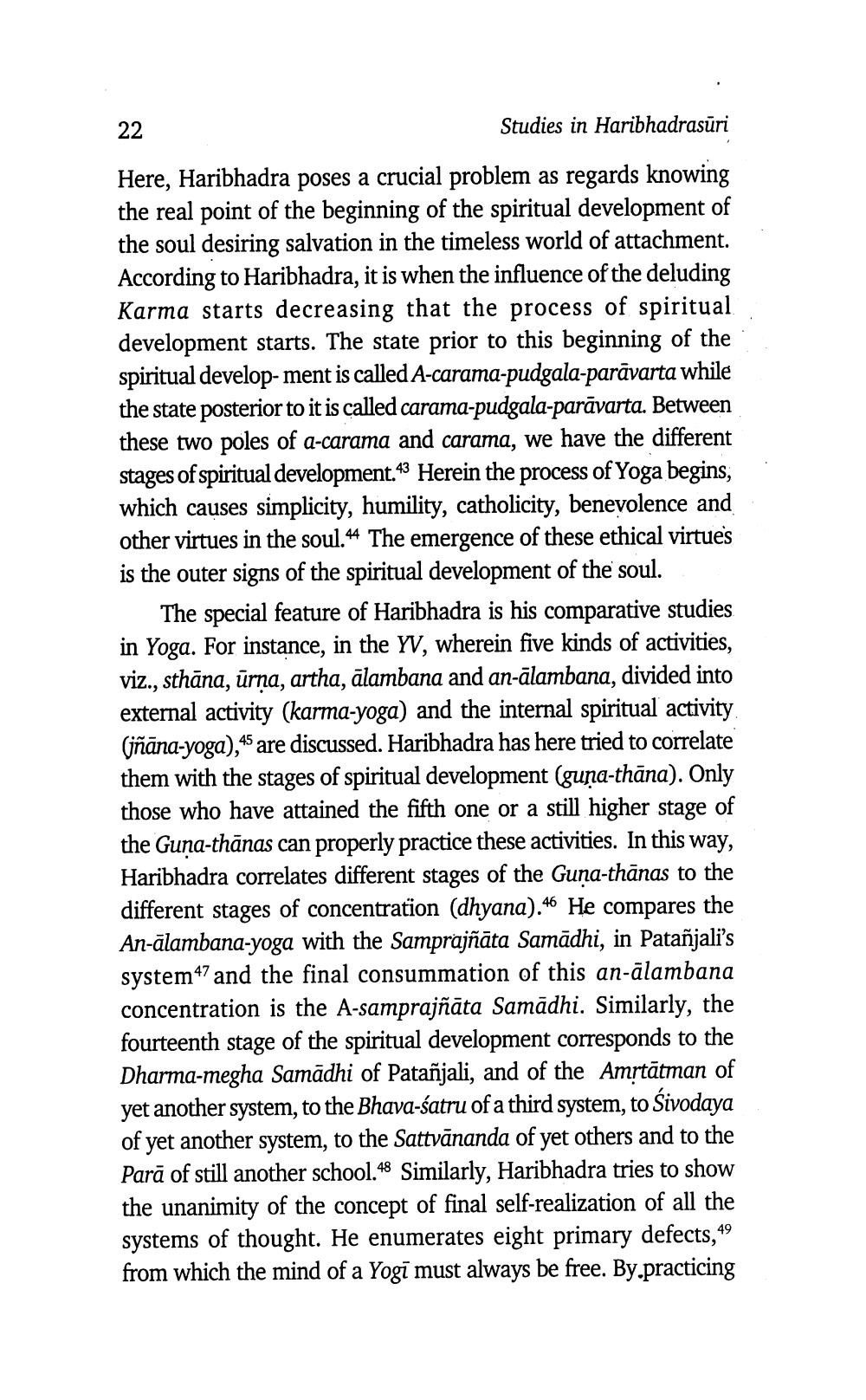________________
22
Studies in Haribhadrasūri
Here, Haribhadra poses a crucial problem as regards knowing the real point of the beginning of the spiritual development of the soul desiring salvation in the timeless world of attachment. According to Haribhadra, it is when the influence of the deluding Karma starts decreasing that the process of spiritual development starts. The state prior to this beginning of the spiritual develop-ment is called A-carama-pudgala-parāvarta while the state posterior to it is called carama-pudgala-parāvarta. Between these two poles of a-carama and carama, we have the different stages of spiritual development.43 Herein the process of Yoga begins, which causes simplicity, humility, catholicity, benevolence and other virtues in the soul.44 The emergence of these ethical virtues is the outer signs of the spiritual development of the soul.
The special feature of Haribhadra is his comparative studies in Yoga. For instance, in the YV, wherein five kinds of activities, viz., sthāna, ūrņa, artha, ālambana and an-ālambana, divided into external activity (karma-yoga) and the internal spiritual activity (jñāna-yoga),45 are discussed. Haribhadra has here tried to correlate them with the stages of spiritual development (guņa-thāna). Only those who have attained the fifth one or a still higher stage of the Guna-thānas can properly practice these activities. In this way, Haribhadra correlates different stages of the Guna-thānas to the different stages of concentration (dhyana).46 He compares the An-ālambana-yoga with the Samprajñāta Samādhi, in Patañjali's system47 and the final consummation of this an-ālambana concentration is the A-samprajñāta Samādhi. Similarly, the fourteenth stage of the spiritual development corresponds to the Dharma-megha Samādhi of Patañjali, and of the Amrtātman of yet another system, to the Bhava-satru of a third system, to Śivodaya of yet another system, to the Sattvānanda of yet others and to the Parā of still another school.48 Similarly, Haribhadra tries to show the unanimity of the concept of final self-realization of all the systems of thought. He enumerates eight primary defects, 49 from which the mind of a Yogī must always be free. By.practicing




